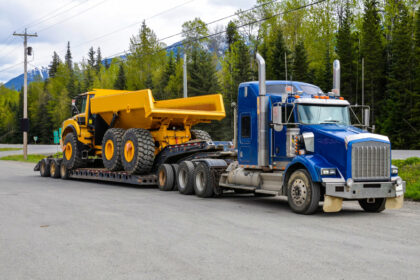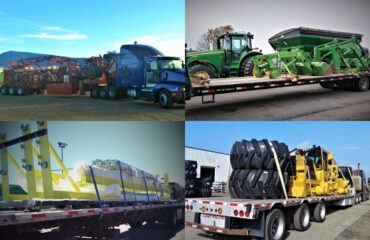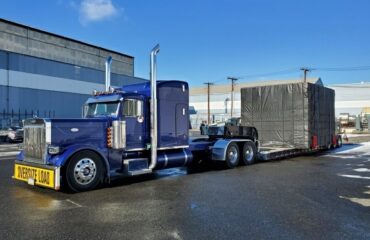
What types of loads are considered “Heavy Hauls”?
Most of us-while driving down the interstate have encountered one of those trucks with a reflective “Oversize Load” sign displayed on the back- being trailed by a pickup truck with flashing lights. This is a prime example of a load that would be considered a “Heavy Haul”.
Heavy Haul loads are exactly as they sound – the transportation of heavy equipment, machinery typically with large and out of the ordinary dimensions. Heavy Haul loads are far from ordinary and typically require extensive and meticulous legal and logistical planning.
To break things down to provide a simple understanding of the different types of trailers that accommodate heavy haul transportation jobs – MLT Logistics has put together the following:
Breakdown of 13 Axle Haul Trailers
13 Axle Haul Trailers consist of a 3-axle trailer, 3-axle jeep, and a 3-axle power booster. Incorporated into the build is a traditional hydraulic gooseneck which spans 13’ 8” with a 52” fifth wheel height with multiple right height positions and a 9’9” flip neck in accompany with the three-axle jeep.
Breakdown of Over Dimensional Trailers
An over dimensional trailer is designed to accommodate cargo that in simple terms is outside of the permitted dimensions for public roads. For example, if a truck has a loading width of 8’-6” and is being loaded with cargo that surpasses the 8’-6” – this would qualify as an over-dimensional load and would need to abide by laws and regulations accordingly.
Breakdown of Flatbed & Step Deck
Trailers
Flatbed Trailer
Flatbed shipping is the transportation of cargo that may not require the enclosure of a dry van, cannot be loaded or unloaded from a dock or does not fit within the dimensions of a standard truck trailer. Flatbed trailers can be utilized to transport a vast array of items ranging from construction materials, to automobiles, small-medium sized farm equipment, etc.
Step Deck Trailer
A step deck trailer is also
often referred to as a drop deck trailer. Step Deck trailers are simply flatbed
trailers with an upper and lower deck, which is where the name “Step deck”
comes from. Step deck trailers are specifically designed to be capable of
hauling freight which is unable to be transported on a standard flatbed due to
height restrictions along the designated route.
There are a variety of types of Lowboy Trailers, however, some of the most common types are:
- Fixed Gooseneck
- Fixed-Neck
- Hydraulic Detachable Gooseneck
- Mechanically Detachable Gooseneck
- Mechanical Folding Gooseneck
Lowboy trailer featured suspension types:
- Spring-ride
- Air-ride
- Hydraulic suspension
- Independent suspension
Breakdown of Conestoga Trailers
Conestoga trailers feature a highly effective sliding tarp design which successfully covers and protects precious cargo from the elements without damaging the cargo underneath. This type of trailer is the perfect choice for protecting finished products without having to go through the hassle of moving them in and out of a dry van or covered container.
Breakdown of Double-drop Trailers
A double-drop trailer is typically used for hauling a piece of equipment or cargo that is capable of driving onto the trailer. This type of trailer is capable of detaching and moving away from the trailer’s lower deck to accommodate easily loading and unloading of equipment capable of moving itself. Centering the cargo and properly securing the cargo onto the double-drop trailer is the key to a successful move.
Freight Brokers like MLT Logistics arrange the shipping of a variety of products such as equipment needed for larger-scaled jobs including and not limited to Construction Equipment, Industrial Machinery, Agriculture Equipment, etc. Not only do freight brokers specialize in most-all shipping methods – but they do so efficiently and economically – saving you time and money.
There are tens of thousands, if not 100’s of thousands of carriers and shippers. To efficiently filter through the options and settle on a carrier that will best suit your business goals and needs – a freight broker is by far the best way to do so.
MLT Logistics is here to understand and help you achieve your personal and business transportation goals. Do not hesitate to reach out to us directly to speak with a professional ready to guide you down the path to success!
Call: 989-546-4335 or Get your Custom Quote Started Online by clicking here.



